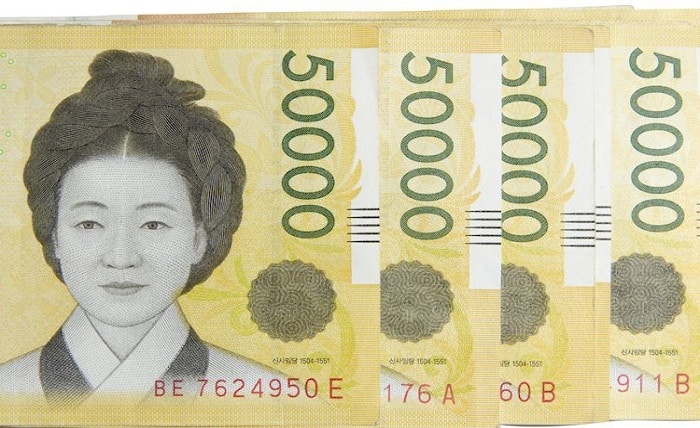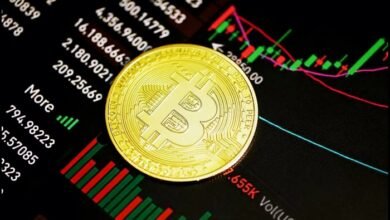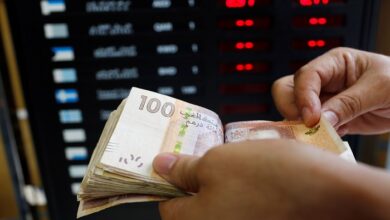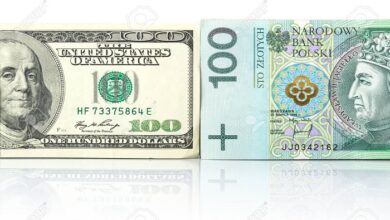USD to Won Exchange Rate: A Comprehensive Guide

Introduction
The USD to Won exchange rate is a crucial indicator for anyone engaged in financial activities between the United States and South Korea. Whether you’re a business owner, investor, traveler, or student, understanding this exchange rate can significantly impact your decisions. This guide delves into the various aspects of the USD to Won exchange rate, providing a thorough understanding of how it operates and its implications.
Historical Trends of USD to Won Exchange Rate
The historical trends of the USD to Won exchange rate offer valuable insights into the economic relationship between the two countries. By analyzing past data, we can observe how geopolitical events, economic policies, and market dynamics have influenced the exchange rate. For instance, the Asian financial crisis in the late 1990s caused significant fluctuations in the USD to Won exchange rate, highlighting the vulnerability of emerging markets to global economic shifts.
Factors Influencing the USD to Won Exchange Rate
Several factors influence the USD to Won exchange rate, including interest rates, inflation rates, political stability, and economic performance. The exchange rate is particularly sensitive to changes in monetary policy by the Federal Reserve and the Bank of Korea. For example, an increase in the US interest rates often strengthens the USD against the Won, as higher returns attract investors to USD-denominated assets.
The Role of Central Banks in the USD to Won Exchange Rate
Central banks play a pivotal role in managing the USD to Won exchange rate. The Federal Reserve in the United States and the Bank of Korea use various monetary policy tools to influence their respective currencies’ value. By adjusting interest rates, conducting open market operations, and implementing quantitative easing or tightening measures, these institutions can impact the supply and demand for USD and Won, thereby affecting the exchange rate.
Economic Indicators and Their Impact on the USD to Won Exchange Rate
Economic indicators such as GDP growth, unemployment rates, and trade balances significantly impact the USD to Won exchange rate. Strong economic performance in the United States typically leads to a stronger USD, while robust economic growth in South Korea can strengthen the Won. For example, a favorable trade balance for South Korea can increase demand for the Won, appreciating its value against the USD.
Political Events and Their Influence on the USD to Won Exchange Rate
Political events, both domestic and international, can cause volatility in the USD to Won exchange rate. Elections, policy changes, and geopolitical tensions can lead to uncertainty in the markets, affecting investor confidence and currency values. For instance, the US-China trade war had indirect effects on the USD to Won exchange rate due to South Korea’s significant trade relationships with both countries.
How to Convert USD to Won
Converting USD to Won can be done through various methods, including banks, currency exchange services, and online platforms. It’s essential to compare exchange rates and fees to get the best deal. Understanding the current USD to Won exchange rate helps you make informed decisions and avoid unfavorable rates. Online currency converters can provide real-time exchange rates, ensuring you stay updated with market changes.
Benefits of Understanding the USD to Won Exchange Rate for Travelers
For travelers, knowing the USD to Won exchange rate is crucial for budgeting and financial planning. By monitoring exchange rates, travelers can exchange money at the most favorable rates, reducing travel costs. Additionally, understanding the exchange rate helps in evaluating the cost of goods and services in South Korea, ensuring you manage your expenses effectively.
Impact of USD to Won Exchange Rate on Businesses
Businesses engaged in international trade between the United States and South Korea must closely monitor the USD to Won exchange rate. Fluctuations in the exchange rate can affect profit margins, pricing strategies, and overall financial performance. For instance, a weaker Won against the USD can make South Korean exports cheaper for US consumers, potentially increasing demand.
Investment Opportunities and the USD to Won Exchange Rate
Investors can leverage the USD to Won exchange rate to identify profitable opportunities. Currency fluctuations can create arbitrage opportunities, where investors buy low in one currency and sell high in another. Additionally, understanding the exchange rate helps investors assess the risks and returns associated with investments in South Korea or the United States.
How Economic Policies Affect the USD to Won Exchange Rate
Economic policies, including fiscal policies, trade policies, and regulatory measures, can significantly impact the USD to Won exchange rate. Government actions such as tax reforms, trade agreements, and tariffs can influence investor confidence and currency values. For example, a trade agreement between the US and South Korea can strengthen the Won by boosting trade flows and economic cooperation.
Future Predictions for the USD to Won Exchange Rate
Predicting the future of the USD to Won exchange rate involves analyzing various economic indicators, market trends, and geopolitical events. While it’s challenging to forecast with absolute certainty, expert analyses and economic models can provide insights into potential trends. Keeping abreast of economic reports and financial news can help anticipate shifts in the exchange rate.
Practical Tips for Managing Currency Exchange Risks
Managing currency exchange risks is essential for businesses and investors dealing with the USD to Won exchange rate. Hedging strategies, such as forward contracts and options, can mitigate risks associated with exchange rate fluctuations. Diversifying investments and maintaining a keen awareness of market trends also help manage potential losses due to adverse currency movements.
Conclusion
Understanding the USD to Won exchange rate is vital for making informed financial decisions, whether you’re a traveler, business owner, or investor. By keeping track of historical trends, economic indicators, and geopolitical events, you can better anticipate changes in the exchange rate and manage your financial activities effectively. Staying informed and employing sound risk management strategies can help you navigate the complexities of currency exchange and optimize your financial outcomes.
FAQs
1. What factors affect the USD to Won exchange rate? The USD to Won exchange rate is influenced by interest rates, inflation rates, political stability, economic performance, and monetary policies of the Federal Reserve and the Bank of Korea.
2. How can I convert USD to Won? You can convert USD to Won through banks, currency exchange services, and online platforms. Comparing exchange rates and fees ensures you get the best deal.
3. Why is the USD to Won exchange rate important for travelers? Understanding the USD to Won exchange rate helps travelers budget and plan their expenses effectively, allowing them to exchange money at favorable rates and manage travel costs.
4. How do businesses benefit from monitoring the USD to Won exchange rate? Businesses engaged in international trade can optimize pricing strategies, manage profit margins, and evaluate financial performance by closely monitoring the USD to Won exchange rate.
5. What strategies can investors use to manage currency exchange risks? Investors can use hedging strategies such as forward contracts and options, diversify investments, and stay informed about market trends to manage risks associated with currency exchange fluctuations.



